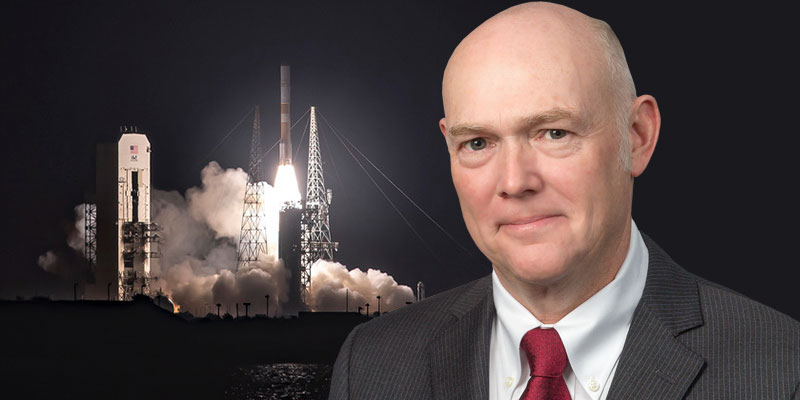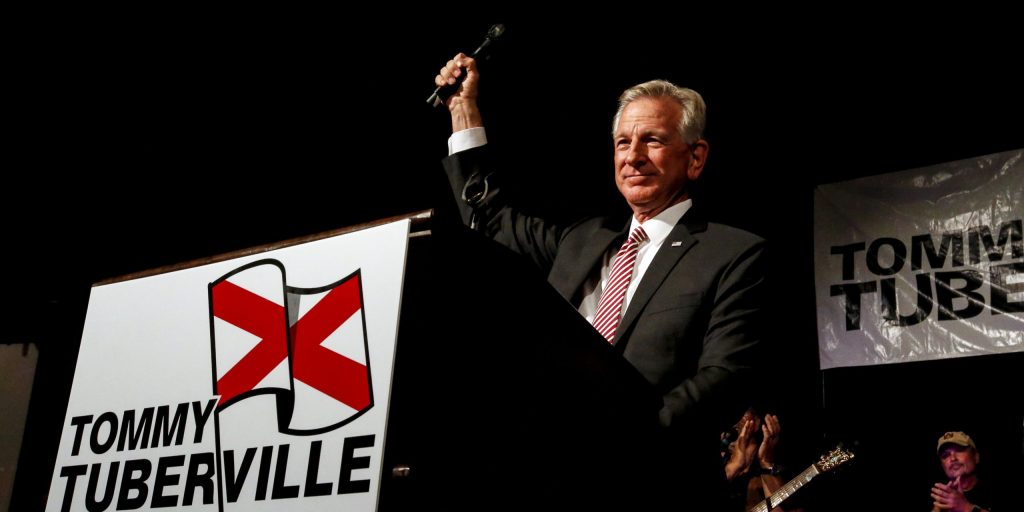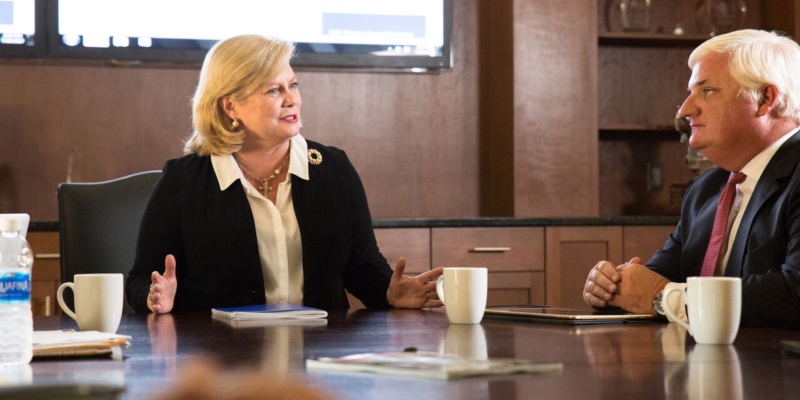With Vice President Mike Pence announcing earlier this week that the Trump administration wants to return American astronauts to the moon within five years, the CEO of an Alabama rocket builder feels certain this new era of space exploration will put the nation’s might on full display.
United Launch Alliance (ULA) CEO Tory Bruno sat down with Yellowhammer News following the most recent National Space Council meeting in Huntsville.
Bruno leads a company slated to power NASA’s next manned space mission, the first since 2011, with rockets built in Decatur.
The news of a lunar mission elicited a predictable reaction from someone who has been building rockets for more than 35 years.
“We are going to be boots in the regolith – as they say – we are going to be on the surface of the moon in five years or less,” he said. “That’s pretty darn exciting.”
Bruno senses the United States is harnessing the same type of strength it did at the height of its space program decades ago.
“It feels like we are harkening back to the days of Apollo, and Apollo was more than just exploration,” he pointed out.
Apollo was the set of American missions which ran from the early 1960s until 1972 and included six lunar landings.
For Bruno, the fact that the stakes were so high helped demonstrate the rationale for manned spaceflight and why it is still important today.
“It was also about showing the world the prowess, the might and the capability of the United States and what free people could do in an open system to innovate and accomplish amazing things that no one in the world could even dream to do,” he said. “And so it allowed us to be a beacon for freedom in the world.”
Another reason he believes manned space missions are critical to the nation’s future is because of what exists beyond the earth’s atmosphere.
“There are tremendous natural resources between here and the moon,” stated Bruno. “It defies imagination. There are about 17,000 asteroids between here and the moon, and together they contain one thousand years of last year’s entire planetary production in industrial metals. More gold and silver than humankind has ever extracted from the earth in all of human history, and it’s all right there about a week away.”
That commercial potential is difficult to ignore, he added.
“This is another very exciting thing about the current era is that we’re starting to see real potential for a vastly expanded commercial set of activities between here and the moon and on the moon itself,” Bruno said.
According to Bruno, the ability to harvest those resources exists as part of the resources themselves.
“We have also discovered that water exists just about everywhere we go,” revealed Bruno. “That’s important because it is rocket fuel. And so we have the basis and the capability now, the potential, to create a transportation system in space that can tap those resources and when we do that it is going to change everything about what it means to be living here on earth.”
Part of Pence’s charge to the National Space Council User Advisory Group (UAG), of which Bruno is a member, is a call for a renewed commitment to space exploration.
Pence’s call for renewed leadership in space is an appropriate one, and timely given the amount resources and focus currently devoted to exploration by other countries, Bruno explained.
“Space was taken for granted,” he said. “We had such tremendous success as a nation in space and of course we are the world’s leader beginning with the Apollo program right through decades afterwards – it was unquestioned. An era came to be when other nations were excited about space and were investing in it, and we were not. The word renew is in there because there is a real feeling that we’ve lost a little bit of ground in terms of our stature and our true leadership of the world in space, and it’s about time that we renew that.”
Pence has also emphasized taking steps to increase innovation and advancement throughout the aerospace industry.
This is an area in which Alabamians will likely serve a vital role, one essential to the Trump administration’s goal of touching down on the surface of the moon within five years.
“There are new things to be done and innovation will be key to getting things done in the timeframe we’re talking about,” Bruno concluded.
Tim Howe is an owner and editor of Yellowhammer News













